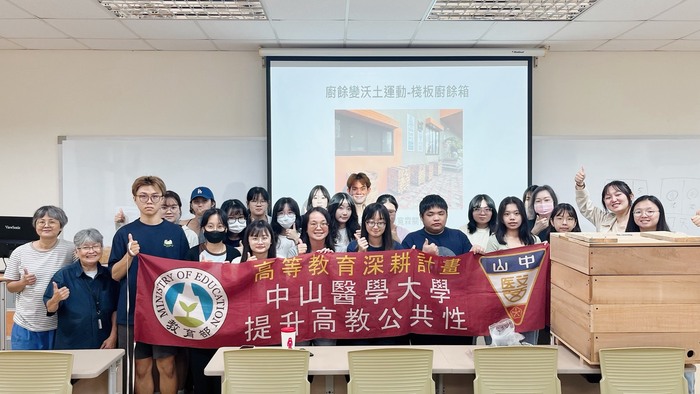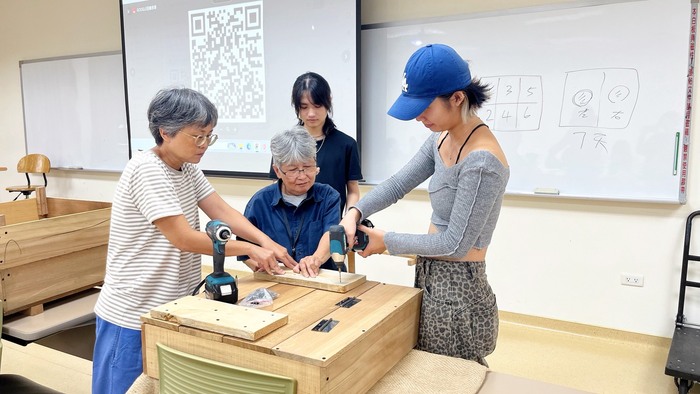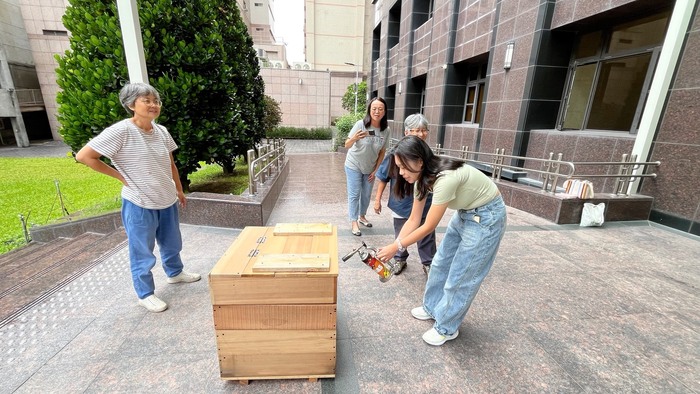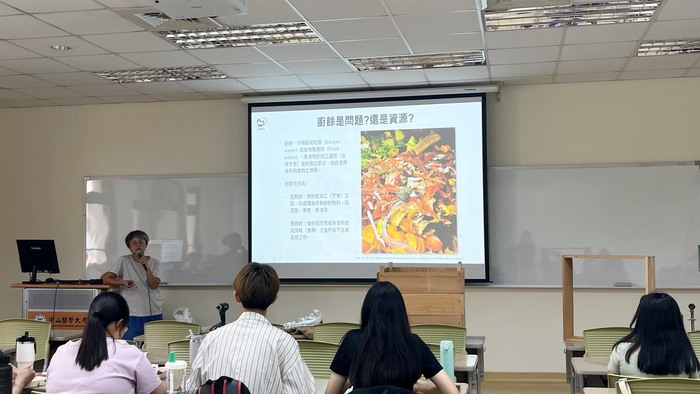2025/09/30 CSMU Hosts Zero-Food-Waste Workshop to Promote Resource Recycling and Sustainability Education




The Teaching Resources and Faculty Development Center at Chung Shan Medical University (CSMU) held the 2025 Soaring Eagle Program: Zero Food Waste – Turning Waste into Black Gold workshop on September 24. The event was jointly planned and executed by students Hsieh Chu-Yun (Department of Psychology) and Su Mei-Fang (Department of Public Health), and received grant recognition. The project’s aim was to support economically disadvantaged students by cultivating patience through participation, while integrating knowledge from psychology, public health, and occupational therapy to expand food waste recycling into the community and encourage public involvement. Through educational teamwork and experiential exchange, students were able to refine their professional skills and embody the core value of “giving back to society with professional knowledge.”
The workshop invited Ms. Huang Yu-Hui, lecturer from the Taiwan Kuanlin Care Association, who guided students in making DIY food waste compost bins. Through hands-on practice, she taught how fruit peels, vegetable scraps, and other daily kitchen waste can be transformed into fertilizer and liquid compost beneficial for agriculture, further promoting food waste recycling and environmental sustainability education.
According to Ms. Huang, simply placing food waste into a wooden box with soil, sawdust, or coffee grounds prevents foul odors and converts the waste into natural fertilizer. The liquid byproduct, once diluted, also becomes a nutrient-rich, odor-free liquid compost. This “turning waste into treasure” method not only improves home and workplace environments but can also be extended to communities, reducing waste at the source, lowering pollution, and decreasing social costs. Moreover, the composting process—such as turning the soil—encourages physical activity, enhances social interaction, and improves overall health and quality of life.
Dr. Tsai Meng-Ju, Director of the Teaching Resources and Faculty Development Center, emphasized that CSMU has long been committed to promoting University Social Responsibility (USR) by integrating cross-disciplinary practice into its curriculum. This event represented a complete learning experience—from planning and execution to practical implementation—while also aligning with the United Nations Sustainable Development Goals (SDGs), including SDG 3 (Good Health and Well-being), SDG 11 (Sustainable Cities and Communities), SDG 12 (Responsible Consumption and Production), and SDG 13 (Climate Action). It exemplifies the university’s spirit of “learning by doing.”
The completed “Zero Food Waste Compost Bin” was donated to the Xichuan Community Activity Center in Taichung, enabling elderly residents to continue using it. This donation deepened CSMU’s partnership with the local community, demonstrating the university’s commitment to neighborliness and social responsibility. Through this learning and practice initiative, CSMU not only fulfilled its USR mission but also joined hands with the community to promote health, mutual well-being, and a sustainable future.